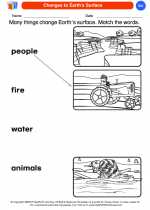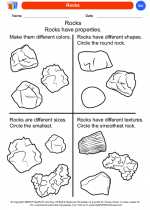Nervous System
The nervous system is a complex network of nerves and cells that transmit signals between different parts of the body. It is responsible for coordinating and controlling the body's activities, and it plays a crucial role in processes such as thinking, learning, and responding to the environment.Anatomy of the Nervous System
The nervous system is divided into two main parts: the central nervous system (CNS) and the peripheral nervous system (PNS). The CNS is made up of the brain and spinal cord, while the PNS consists of all the nerves that extend from the CNS to the rest of the body.Function of the Nervous System
The nervous system carries out three main functions: sensory, integrative, and motor. Sensory neurons transmit signals from sensory receptors to the CNS, where the information is processed. The integrative function involves analyzing and interpreting sensory information, while the motor function involves transmitting signals from the CNS to the muscles and glands to produce a response.Components of the Nervous System
The nervous system is composed of neurons, which are specialized cells that transmit electrical and chemical signals. Neurons consist of a cell body, dendrites (which receive signals), and an axon (which transmits signals). Glial cells, or neuroglia, provide support and protection for neurons.Study Guide
- What are the two main parts of the nervous system?
- Explain the three main functions of the nervous system.
- Describe the components of a neuron.
- What is the role of glial cells in the nervous system?
[Nervous System] Related Worksheets and Study Guides:
.◂Science Worksheets and Study Guides Kindergarten. Our Earth
Coloring Worksheet Changes to Earth's Surface
Changes to Earth's Surface  Coloring Worksheet
Coloring Worksheet Changes to Earth's Surface
Changes to Earth's Surface  Coloring Worksheet
Coloring Worksheet Earth's Resources
Earth's Resources  Coloring Worksheet
Coloring Worksheet Earth's Resources
Earth's Resources  Coloring Worksheet
Coloring Worksheet Landforms
Landforms  Coloring Worksheet
Coloring Worksheet Landforms
Landforms  Coloring Worksheet
Coloring Worksheet Our Earth
Our Earth  Coloring Worksheet
Coloring Worksheet Our Earth
Our Earth  Coloring Worksheet
Coloring Worksheet Reduce-Reuse-Recycle
Reduce-Reuse-Recycle  Coloring Worksheet
Coloring Worksheet Reduce-Reuse-Recycle
Reduce-Reuse-Recycle  Coloring Worksheet
Coloring Worksheet Rocks
Rocks  Coloring Worksheet
Coloring Worksheet Rocks
Rocks  Coloring Worksheet
Coloring Worksheet Soil Beneath Our Feet
Soil Beneath Our Feet  Coloring Worksheet
Coloring Worksheet Soil Beneath Our Feet
Soil Beneath Our Feet  Coloring Worksheet
Coloring Worksheet Types of Fossils
Types of Fossils  Coloring Worksheet
Coloring Worksheet Types of Fossils
Types of Fossils  Coloring Worksheet
Coloring Worksheet Uses of Rocks & Minerals
Uses of Rocks & Minerals  Coloring Worksheet
Coloring Worksheet Uses of Rocks & Minerals
Uses of Rocks & Minerals  Coloring Worksheet
Coloring Worksheet Water, Water Everywhere
Water, Water Everywhere  Coloring Worksheet
Coloring Worksheet Water, Water Everywhere
Water, Water Everywhere 

 Coloring Worksheet
Coloring Worksheet
 Coloring Worksheet
Coloring Worksheet
 Coloring Worksheet
Coloring Worksheet
 Coloring Worksheet
Coloring Worksheet
 Coloring Worksheet
Coloring Worksheet
 Coloring Worksheet
Coloring Worksheet
 Coloring Worksheet
Coloring Worksheet
 Coloring Worksheet
Coloring Worksheet
 Coloring Worksheet
Coloring Worksheet
 Coloring Worksheet
Coloring Worksheet
 Coloring Worksheet
Coloring Worksheet
 Coloring Worksheet
Coloring Worksheet
 Coloring Worksheet
Coloring Worksheet
 Coloring Worksheet
Coloring Worksheet
 Coloring Worksheet
Coloring Worksheet
 Coloring Worksheet
Coloring Worksheet
 Coloring Worksheet
Coloring Worksheet
 Coloring Worksheet
Coloring Worksheet
 Coloring Worksheet
Coloring Worksheet

The resources above cover the following skills:
EARTH AND SPACE SCIENCE (NGSS)
Earth and Human Activity
Students who demonstrate understanding can:
Communicate solutions that will reduce the impact of humans on the land, water, air, and/or other living things in the local environment.